
Jefferson Airplane was an American rock band based in San Francisco, California, that became one of the pioneering bands of psychedelic rock. Formed in 1965, the group defined the San Francisco Sound and was the first from the Bay Area to achieve international commercial success. They headlined the Monterey Pop Festival (1967), Woodstock (1969), Altamont Free Concert (1969), and the first Isle of Wight Festival (1968) in England. Their 1967 breakout album Surrealistic Pillow was one of the most significant recordings of the Summer of Love. Two songs from that album, "Somebody to Love" and "White Rabbit", are among Rolling Stone's "500 Greatest Songs of All Time".

Jefferson Starship is an American rock band from San Francisco, California, formed in 1974 by a group of musicians including former members of Jefferson Airplane. Between 1974 and 1984, they released eight gold or platinum-selling studio albums, and one gold-selling compilation. The album Red Octopus went double-platinum, reaching No. 1 on the Billboard 200 chart in 1975. The band went through several major changes in personnel and genres through the years while retaining the Jefferson Starship name. The band name was retired in 1984, but it was picked up again in 1992 by a revival of the group led by Paul Kantner, which has continued since his death in 2016.

John Michael Thomas is an American rock singer, and he is best known as one of the lead vocalists of Jefferson Starship and Starship.

Martyn Jerel Buchwald, known as Marty Balin, was an American singer, songwriter, and musician best known as the founder/leader and one of the lead singers and songwriters of Jefferson Airplane and Jefferson Starship.
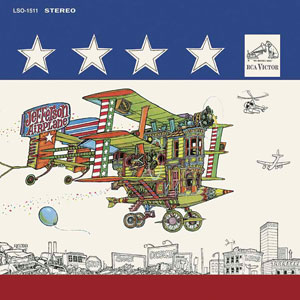
After Bathing at Baxter's is the third studio album by the San Francisco psychedelic rock band Jefferson Airplane, released in 1967 as RCA Victor LSO-1511 (stereo) and LOP-1511 (mono). The cover art is by artist Ron Cobb.
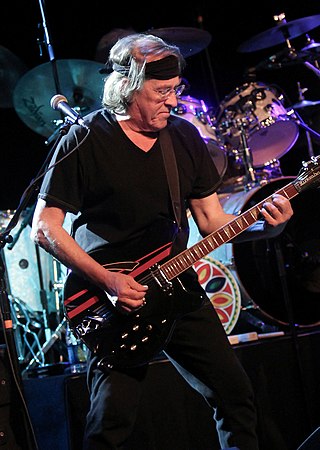
Paul Lorin Kantner was an American rock musician. He is best known as the co-founder, rhythm guitarist, and a secondary vocalist of Jefferson Airplane, a leading psychedelic rock band of the counterculture era. He continued these roles as a member of Jefferson Starship, Jefferson Airplane's successor band.

Jefferson Airplane Takes Off is the debut studio album by the American rock band Jefferson Airplane, released on 15 August 1966 by RCA Victor. The personnel differs from the later "classic" lineup: Signe Toly Anderson was the female vocalist and Skip Spence played drums. Both soon left the group—Spence in May 1966, Anderson in October—and were replaced by Spencer Dryden and Grace Slick, respectively.

Red Octopus is the second album by American rock band Jefferson Starship, released on Grunt Records in 1975. Certified double platinum by RIAA in 1995, it is the best-selling album by any incarnation of Jefferson Airplane and its spin-off groups. The single "Miracles" was the highest-charting single any permutation of the band had until Starship's "We Built This City" a decade later, ultimately peaking at No. 3 on the Billboard singles chart; the album itself reached No. 1 for four non-consecutive weeks on the Billboard 200. As was common in the era, stereo and quadraphonic mixes of the album were released concurrently.

Jefferson Airplane is the eighth and final studio album by San Francisco rock band Jefferson Airplane, released on Epic Records in 1989. Marty Balin, Paul Kantner, Grace Slick, Jorma Kaukonen and Jack Casady all returned for the album and supporting tour, though Spencer Dryden did not participate. The album and accompanying tour would mark the last time Jefferson Airplane would perform together until their 1996 induction to the Rock and Roll Hall of Fame.
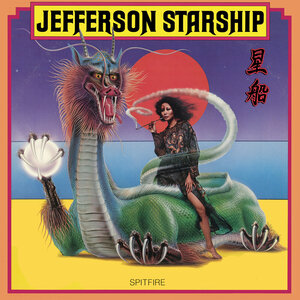
Spitfire is the third album by American rock band Jefferson Starship. Released in 1976, a year after the chart-topping Red Octopus, it quickly scaled the charts, peaking for six consecutive weeks at No. 3 in Billboard and attaining a RIAA platinum certification. The album features writing contributions from members of singer Marty Balin's former band Bodacious DF, as well as Jesse Barish, who became one of Balin's frequent collaborators. Stereo and quadraphonic mixes of the album were released. "Song to the Sun" was included in the 1977 Laserock program.

The Worst of Jefferson Airplane is the first compilation album from the rock band Jefferson Airplane, released in November 1970 as RCA Victor LSP-4459. The "Worst" in the title is ironic, as the album features all of Jefferson Airplane's hit singles up to that point. It peaked at #12 on the Billboard 200 in 1971 and has since gone platinum.
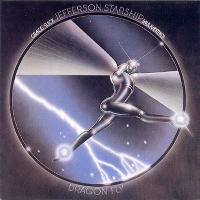
Dragon Fly is the debut album by Jefferson Starship, released on Grunt Records in 1974. It peaked at No. 11 on the Billboard 200, and has been certified a gold album. Credited to Grace Slick, Paul Kantner, and Jefferson Starship, the band itself was a turning point after a series of four albums centering on the partnership of Kantner and Slick during the disintegration of Jefferson Airplane through the early 1970s.
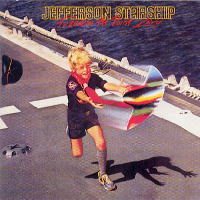
Freedom at Point Zero is the fifth album by American rock band Jefferson Starship, released in 1979. It was the first album for new lead singer Mickey Thomas, and the first after both Grace Slick and Marty Balin left the previous year. Aynsley Dunbar plays drums on this album; he had left Journey the previous year. The album cover was shot on location in the San Francisco Bay on board the USCGC Midgett.

Earth is the fourth album by American rock band Jefferson Starship. The album was recorded in 1977, with the same band lineup as the previous album, Spitfire and released in 1978.
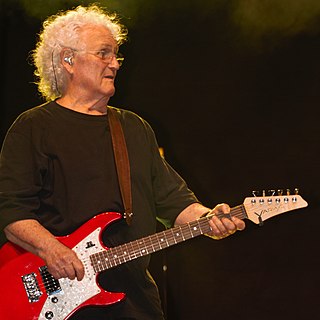
David Freiberg is an American musician best known for contributing vocals, keyboards, electric bass, rhythm guitar, viola and percussion as a member of Quicksilver Messenger Service, Jefferson Airplane, and Jefferson Starship. Among other tracks, he co-wrote "Jane", a hit for Jefferson Starship.

"With Your Love" is a song written by Marty Balin, Joey Covington and Vic Smith. The song was first recorded by Jefferson Starship and was the lead single of their 1976 album Spitfire. In the US, the single peaked at number 12 on the Billboard Hot 100 and number 6 on the Adult Contemporary chart. It was also a top-ten hit in Canada.
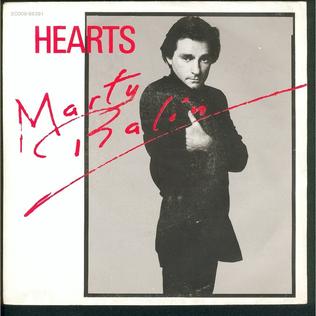
"Hearts" is a song written by Jesse Barish and performed by Marty Balin in 1981, included on his debut solo album Balin. It was Balin's third single in nineteen years and the biggest hit of his solo career.

"Count on Me" is a 1978 song and single by Jefferson Starship written by Jesse Barish for the album Earth. The single, in lighter rock mode, gave Starship another US Top 10 hit after "Miracles". It was featured in the end credits to the movies Grown Ups and The Family Stone.

"Runaway" is a 1978 song and single by Jefferson Starship, written by Nicholas Q. Dewey for the album Earth. It was the second U.S. Top 40 hit from that album, and was the follow-up to the Top 10 hit "Count On Me". The song peaked at #12 on the U.S. Billboard Hot 100 and number 13 on the Cash Box Top 100.


















